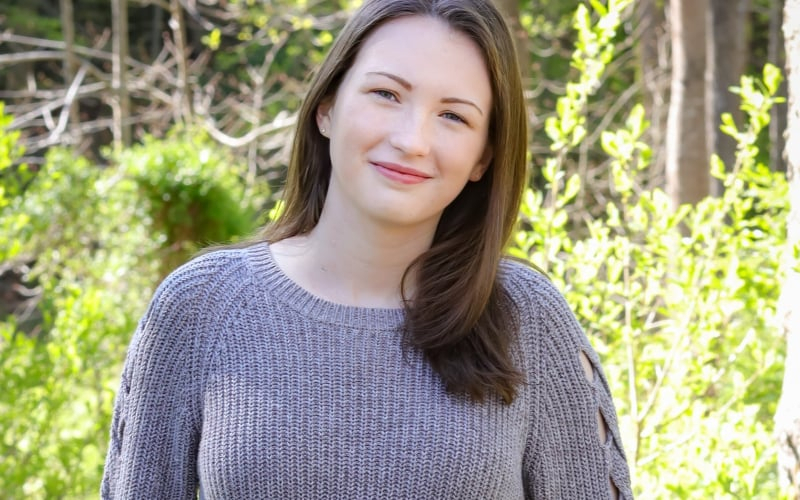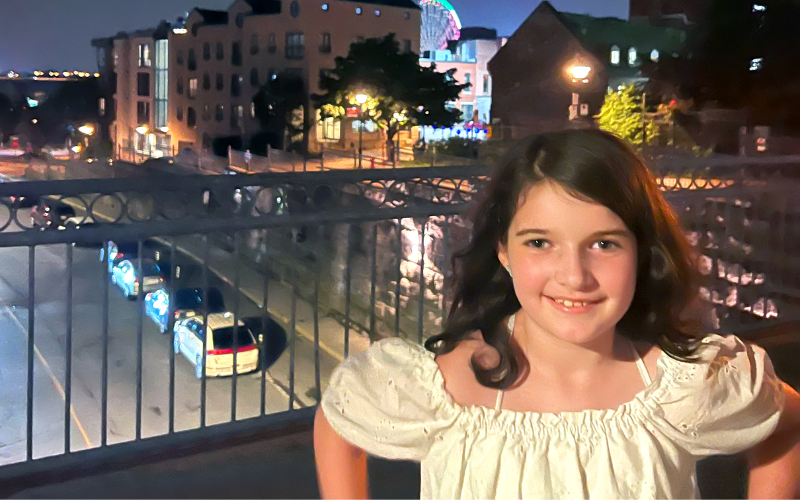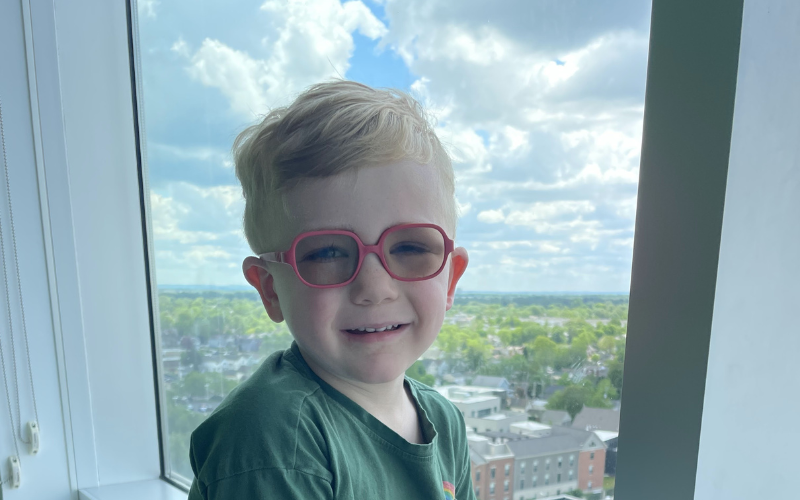By: Trish Adkins
Sonia was just 11 years old when she started coughing. The cough was relentless; worried their daughter had pneumonia, Sonia’s parents took her to the emergency room.
Sonia didn’t have pneumonia; but the scans revealed a more ominous reading: tumors in both of her lungs. Those tumors were metastasized Ewing sarcoma, a type of bone cancer, with only a 15-30% five-year survival rate when it is found in the lungs at diagnosis.
Sonia spent one month in the ICU, endured surgery after surgery, and chemotherapy. Treatment seemed to work, but then two years after her diagnosis, a routine scan picked up a new bright spot in her right lung. Doctors scheduled a more detailed scan to determine if the spot was cancer.
“I knew if I woke up from that scan with a port, it was Ewings,” Sonia said. She woke up with a port, which is small, implanted reservoir that allows doctors and nurses to deliver chemotherapy treatment directly through the port, eliminating the need for repeated IVs. Despite treatment, the tumors kept returning, prompting Sonia to move her treatment to Dana-Farber Cancer Institute (DFCI), an Alex’s Lemonade Stand Foundation Center of Excellence (COE) grant institution. COE institutions receive funding to support the development of clinical trials and to train young researchers in clinical trial design. At DFCI, Sonia met Dr. Steve Dubois, who leads their COE grant program.
“When I met Dr. Dubois, that is when my life changed,” said Sonia. She began a new treatment, but then her cancer returned, again, this time in her big toe. Sonia began a new trial, one funded, in part, by ALSF, for a targeted drug used in combination with chemotherapy.
It’s worked. Sonia’s toe tumor is shrinking and she’s been stable without any new tumor sightings. This fall, Sonia finished her first semester at college — studying bio-chemistry, so someday she can help kids just like her.
Sonia’s story was made possible by childhood cancer research. In 2024, ALSF was able to fund 118 new research grants, including grants that encourage and cultivate new scientists and more experienced investigators as they work on innovative, promising approaches to curing childhood cancer.
Meet more children and young adults who are thriving, thanks to childhood cancer research.
1. Madelyn
Madelyn Flickinger was 12 years old when she was diagnosed with a rare, chronic blood cancer. The cancer caused a blood clot that pushed her liver into failure and Madelyn received a liver transplant. For the next seven years, Madelyn took oral chemotherapy, until an ALSF-funded researcher, Dr. Linda Resar, was able to switch Madelyn to a new, targeted therapy that works to combat the mutation.
Thanks to that therapy, Madelyn’s cancer is stable. Last summer, Madelyn received a POST grant from ALSF — a full circle moment giving her the opportunity as a student to study childhood cancer with the hope to help other kids.
2. Brynn
At just 2 years old, Brynn was diagnosed with a brain tumor called ependymoma. At first, standard treatment worked. When she turned 4, Brynn relapsed and was pulled back into the terrifying world of cancer. With the help of ALSF's Travel For Care program, Brynn was able to reach a cutting-edge immunotherapy clinical trial led by an ALSF-funded researcher. Today, Brynn is now 10 years old, a dedicated Girl Scout, and the ultimate Swiftie.
3. Jude
When Jude was diagnosed with retinoblastoma at 9 months old, doctors said they had caught his cancer early. Unfortunately, because Jude was still a baby, the standard chemotherapy treatment scarred the tissue in the artery behind his eye. After further failed attempts to shrink the tumor, the only course forward was clear: Jude needed his eye removed. Thankfully, with the removal of his eye, the cancer left too. Today, Jude is a thriving 6 year old.
4. Ailani
Ailani was 2 years old when she was diagnosed with leukemia that had a rare, hard-to-treat mutation. For the next six years, Ailani would endure two bone marrow transplants and clinical trial after clinical trial as her parents hoped, prayed, and looked for a cure. Ailani's first time in school was last year – and midway through, she relapsed, again. She began her fourth CAR-T cell therapy. Now, while she attends third grade, her parents watch, wait and pray that her next bone marrow biopsy in December shows no evidence of disease and that this treatment is finally her cure.
Give Now and Help Children with Cancer Right Now.
Your gift to Alex’s Lemonade Stand Foundation funds critical research to discover more breakthroughs in treatment, expand access to clinical trials across the country, and support families as they face a childhood cancer diagnosis.






